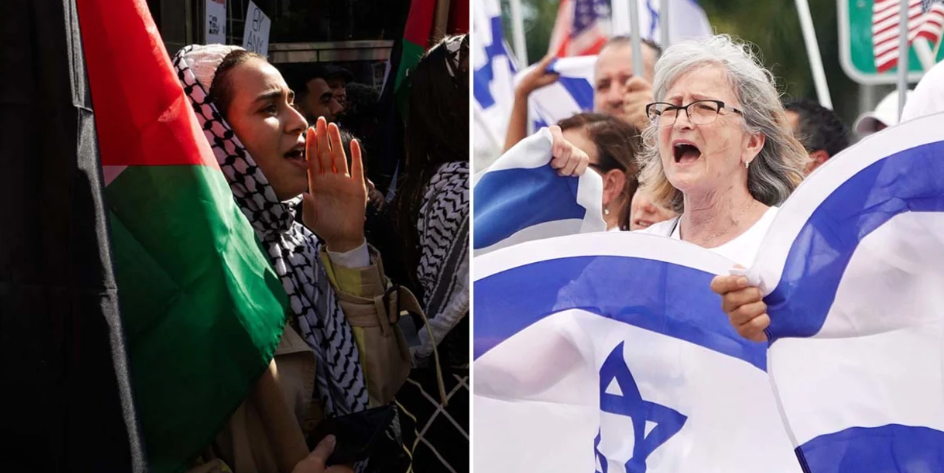The Front Lines

Shabbat Morning Derasha
Young Israel Talmud Torah of Flatbush
20 Cheshvan 5784
November 4, 2023
Rabbi Yoni Rosensweig, a colleague in Israel, recently wrote as follows:
“My daughter told me today, she feels so pointless, there is nothing she can do to help the situation, she has no strength to go anywhere, her existence just feels so hollow.”
I think many of us feel this way. During the initial weeks, we felt that we were meeting urgent needs by collecting funds and sending supplies to Israel. And we still are, but to a much lesser degree. Now, four weeks in, as our troops 6,000 miles away have begun a grinding, painfully costly ground war in Azza that may extend for months, we too sometimes feel hollow. We too sense that there isn’t very much we can do right now - and many of us feel guilt-ridden because of it. Certainly our tefillot matter; they make a tremendous difference. But what about our other efforts? Al pi derech hateva, in the natural course of events, do we have a meaningful role to play?
I think we do. Here’s why. The Mishnah in Masechet Sotah teaches that before the troops go out to the battlefield, they gather. They listen to the inspiring words of the kohen mashuach milchama, the priest who inspires the troops before they go out to battle. Then an officer speaks to the men. Those who recently built a house or were married, he instructs, should go home. Instead of fighting, they are to assist in the war effort by providing water and food, and by preparing roadways for the troops.
But if these non-combatants are merely going home and chipping in to the war effort from the home front, why do they need to listen to the kohen’s talk about the bravery required of soldiers who are going out to war? They’re nit going anywhere; they’re going home.
A contemporary author, R. David Yitzchak Man, born in Tel Aviv in 1944, offers a remarkable analysis in his commentary Beer Miriam. He explains that it is not only the soldiers who are engaged in warfare. In fact, all those who are in danger and therefore must actively contribute to the war effort are engaged in warfare as well. The people who are sent home are not exempted from battle; they are simply obligated to fight in a different way.
In his words,
אינו חיוב אחר במי שמופקע ממלחמה, אלא הכל מצד מעשה המלחמה הוא.
“The law of fixing the roadways and providing water and food is not a separate obligation incumbent upon one who is exempt from war. It is all part of the responsibility of warfare.”
And that’s why they all need to hear the kohen’s speech. They too were endangered and afraid. They also needed chizzuk because they too were at war.
Now, one might respond: this might be relevant for those living in Israel. They too, on some level, are fighting in the war. But what about us? We’re not on the front lines. We’re not even on the home front.
But if the past few weeks have taught us anything, it’s that we are all on the front lines or close nearby. If we have family or friends with children at institutions like Harvard, Cooper Union, or Cornell, we are on the front lines. If we are actively involved in our shuls, with our dramatically increasing security needs, we are on the front lines. Apparently, if the pro-Palestinian march two weeks ago across the Brooklyn Bridge is any indication, if you live in Flatbush, you are close to the front lines.
Hamas and its allies across the world no longer bother pretending to draw any distinction between anti-Zionism and antisemitism. As Yonah Hain, Hillel Rabbi at Columbia University and a former classmate, wrote last week in the Columbia student newspaper:
“For years, Columbia’s Palestinian freedom movement has differentiated between anti-Zionism and anti-Semitism... But by using the October 7 attacks as a rallying point for the movement, attendees of the campus rally can no longer argue that their activism differentiates between the two. They are now saying the quiet part out loud: Dead Jews don’t matter.”
So this is not only a war against Israel, as we have known all along and as we have seen time and again throughout our history. It is a war against Jews, against each and every one of us. We are not the heroes of Tzahal, we are not in Medinat Yisrael, but still, in a lesser but meaningful way, we are all fighting on the front lines.
More than that, for many of us, there is a sense of betrayal.
Lot experienced something like this in Sedom. The Midrash in Bereishit Rabba (50:3) notes that the passuk states, VeLot yoshev besha’ar Sedom, Lot was sitting in the gate of Sedom. The passuk spells the word yoshev chaser, missing a vav, as if it were written yashav, as if to suggest that he had just sat in the gate of Sedom. The Midrash derives from here that oto hayom minuhu rosh dayanim, they appointed him head of the judges on that very day! Imagine: the very day he was appointed the head judge, respected and appreciated for the skills he brought to the table; seemingly having reached the apex of society - that very same day, the moment he stood up for the Jewish value of hachnasat orchim, a mob surrounded his house agitating to murder young and old alike. When push came to shove, Lot realized he wasn’t really part of their community. They turned on him in an instant. Many of us feel the same way about at least some institutions, countries, or even friends we hope would have responded differently. As the passuk describes in Eicha, we feel like “kol re’eha bagdu bah, hayu lah le’oyvim,” our friends have become treasonous against us. They have instead become our enemies.
So if we are confronting an onslaught of antisemitism, and we feel abandoned by at least some of those whose friendships we hold - or held - dear, we too are on front lines of מלחמת חרבות ברזל, the War of Iron Swords. Every dollar we raise, every rally we attend, every tefilla we recite, is not just important. It’s an essential part of the larger war effort, it’s a maaseh milchama. Every message of support we send to our family, friends, or the chayalim is a maaseh milchama. Every time we stand strong and refuse to bow before the threat of antisemitism - that too is a maaseh milchama.
I opened with Rabbi Yoni Rosensweig’s remark about his daughter’s question as to how she could make a difference, so I now share his response. He said:
“Every time you talk to your boyfriend on the phone, every time you send one of your friends a message to see how they’re doing, every time you send a care package to a soldier - you connect them back to normalcy, to stability, to their routine. And they need that, they need to balance out the insanity they live daily, with the love and warmth and comfort of hearth and home.”
May we all merit to make our own meaningful contribution in the ongoing milchama, and may our heroic soldiers, Medinat Yisrael, and all the Jewish people return soon to that love and warmth and comfort of hearth and home.
Yevarechecha Hashem veyishmerecha,
Yaer Hashem panav elecha vichuneka,
Yissa Hashem panav elecha ve-yasem lecha shalom.
